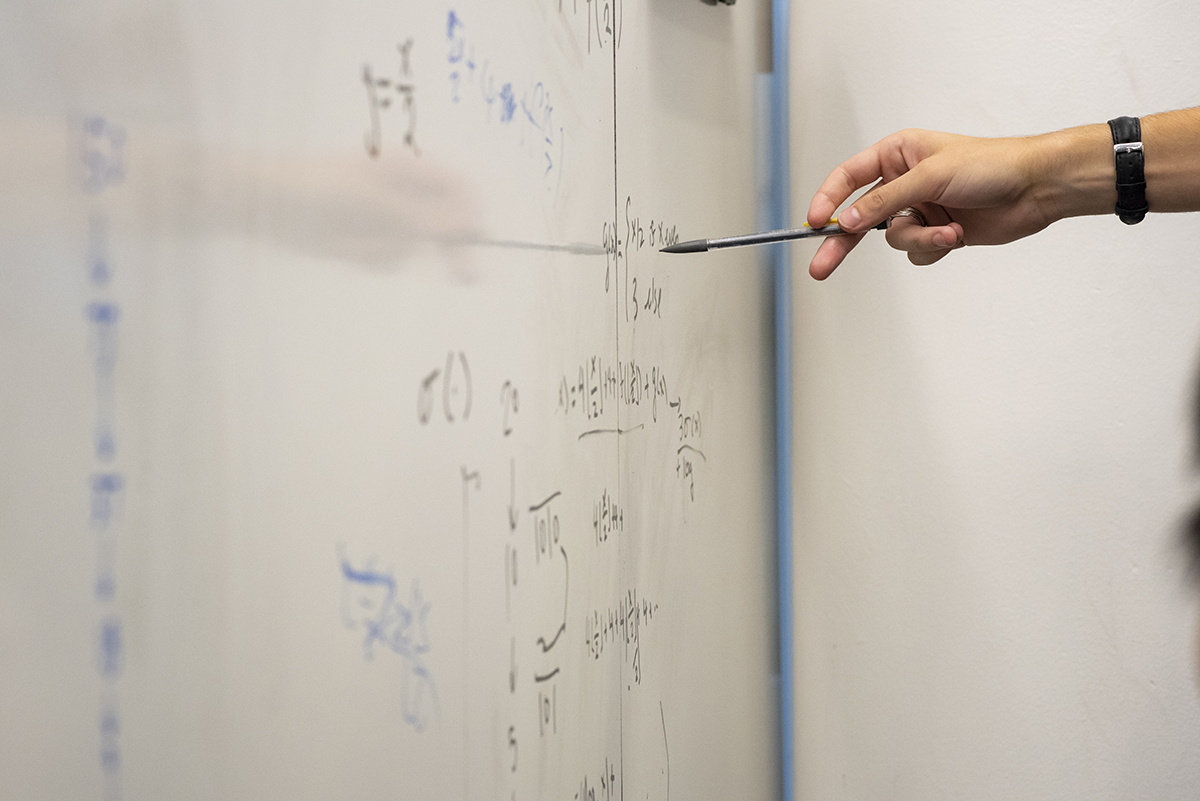Leading AI Scholars Featured in New Oral Archive Related Textbook, "AI and Humanity" Will Be Published Next Month
Byron SpiceThursday, February 20, 2020Print this page.

Artificial intelligence is the creation of human beings, including a number from Carnegie Mellon University. Now, AI is changing humans. It's a subject that Illah Nourbakhsh of the Robotics Institute and Jennifer Keating of the Dietrich College of Humanities and Social Science explore in an interdisciplinary CMU course, "AI and Humanity."
Nourbakhsh and Keating have captured the thoughts of some leading AI scholars in a new oral archive that became available online this year. It includes video and transcripts from 22 people, including MIT's Daniela Rus, Harvard University's Barbara Grosz and Microsoft's Eric Horvitz, as well as a number of CMU faculty members such as Martial Hebert, David Danks, Mark Kamlet, Tuomas Sandholm and Jim Herbsleb.
"These are the founders of the field," said Nourbakhsh, the K&L Gates Professor of Ethics and Computational Technologies. "It's not a history project; it's about them being critical analysts of their field. They are talking about the future."
For instance, Rus, the director of MIT's Computer Science and AI Laboratory, imagines a world where AI and robots take over routine chores. "I like to imagine robots delivering fresh produce at my doorstep on a daily basis," she says in her video. "I like to think about the possibility of garbage cans that take themselves out and automated infrastructure that supports removing them. I like to think about intelligent assistance … that supports us with all sorts of tasks to ensure that we work efficiently, and we live well."
Also in the archive, Grosz, a computer scientist at Harvard, suggests people may need to rethink how AI services are designed. Calling a customer service line and talking to a computer first and only to a human if there's a problem makes for a bad experience, she explained. "If they had been designed instead for the person to answer the phone first and for the computer to support them, it would be a better experience all around," she says in her video.
Moshe Vardi, a professor of computer science at Rice University, believes people must hold on to those things that make them special, such as human rights. "I don’t think we should give robots human rights," he says in the archive video. "We should not give corporations human rights. We are eroding human rights by giving them away to other things."
Nourbakhsh said the plan is to keep adding new voices to the archive, making it an expanding resource for AI students and scholars.
The release of the archive coincides with the publication next month by MIT Press of the textbook "AI and Humanity." Nourbakhsh and Keating, assistant dean for educational initiatives in the Dietrich College, wrote it for their course, which is part of Dietrich's Grand Challenge Seminar series for first-year students.
The book and the archive will be celebrated on Friday, Feb. 28, in Simmons Auditorium A in the Tepper Building. Vardi, the University Professor and Karen Ostrum George Distinguished Service Professor in Computational Engineering at Rice, will present a keynote lecture, "Technology Is Driving the Future, but Who Is Steering?" at 4 p.m. A panel discussion will follow, featuring Richard Scheines, dean of the Dietrich College; Hebert, dean of the School of Computer Science; Colin MacCabe, professor of English and film at the University of Pittsburgh; and Molly Steenson, K&L Gates Associate Professor of Ethics and Computational Technologies in the College of Fine Arts. The program is open to the public, but an RSVP by Friday, Feb. 21, is requested.
Byron Spice | 412-268-9068 | bspice@cs.cmu.edu<br>Virginia Alvino Young | 412-268-8356 | vay@cmu.edu
